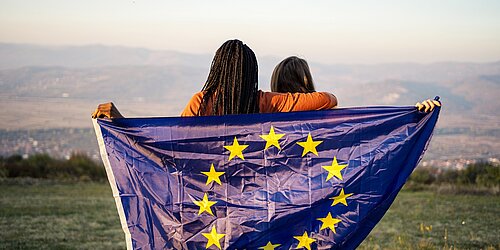Copyright: Shutterstock/chayanuphol
Project background
Bioeconomy is conceived as an economy beyond fossil raw materials and based on renewable raw materials. On top of traditional sectors such as food and animal feed, paper, textiles, agriculture, fisheries and forestry, the knowledge-based bioeconomy is postulated as a viable alternative to the fossil-based economy with potential areas for innovation and growth.
However, ecosystems are under extreme pressure from high-intensity land use and biomass is a scarce resource. Additional material and energy uses within a bioeconomy exacerbate the prevailing crises – the biodiversity, climate and food crises. Therefore, the focus of this project is on the knowledge-based bioeconomy as an envisaged economic system, well aware of the traditional applications.
In many EU Member States, the implementation of national bioeconomy strategies is playing an important role in setting the agenda for economic development. Although all policy documents related to the bioeconomy mention “stakeholder participation”, involvement of non-governmental organisations (NGOs) has in most cases only been sporadic. NGOs can play an important role in the implementation of policies and guidelines for a bioeconomy that is environmentally sound, equitable and makes a real contribution to climate change.
Project goals and measures
Implementing the EU Bioeconomy Strategy into national law is driving the political discourse on the bioeconomy in many EU Member States. To strengthen the participation of civil society organisations in these processes, the project will bring together NGOs from at least four EU Member States in a series of meetings. At these, the European perspective will also be considered and possible initial options for action will be agreed upon.
The project will start with a joint analysis of the current resource demands of national bioeconomy strategies. After this, an international NGO meeting will bring in more partners and will help to formulate joint positions on processes relevant to the bioeconomy like the revision of the EU Packaging Directive or the EU Directive on Single-use Plastics. Both are closely linked to the consumption of biogenic resources such as pulp and paper or bioplastics.
A European Bioeconomy Conference in 2024, organized by the project, will bring together representatives of governments, NGOs and industry to discuss options for improvements in the implementation of national bioeconomy strategies in Germany, Finland and Estonia. Furthermore, the national political interests with regard to the planned amendment of the EU Packaging Directive or the EU Directive on Single-use Plastics will be addressed and the documented results of the conference will be used for the following steps in the project.
Finally, the project aims at organizing a high-level bioeconomy event in Brussels that will link NGOs with representatives of the EU Commission, EU Parliament and Member States. This will be imperative for civil society organisations to play a stronger role in the implementation of European bioeconomy strategies.
